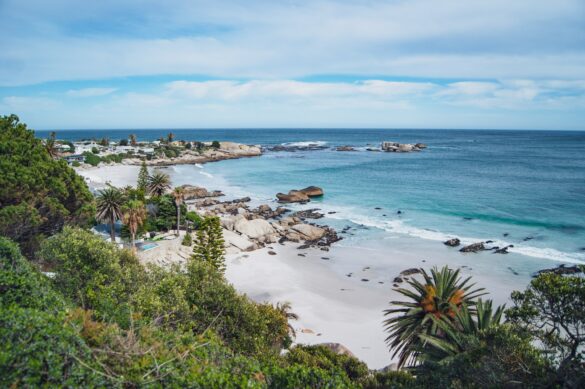Located in the southeast of Côte d’Ivoire in West Africa, the Sud-Comoé Region is a forest and agricultural region in essence. It is a region in the throes of major changes that inevitably have an impact on the environment, due to intense human, agricultural, tourist, and industrial activities. Recently, concrete climate actions implemented on the ground have contributed to positioning the Sud-Comoé Region as an example of governance and leadership in terms of local responses to the climate crisis.
These changes have led the Regional Council of Sud-Comoé headed by Dr. AKA Aouélé, who is also President of the Economic, Social, Environmental and Cultural Council (CESEC), to make it a point of honor to preserve the economy with activities that mitigate or adapt to environmental damage. In other words, President AKA Aouélé and his team have rethought the way of working and living in the Sud-Comoé Region with the compass of the commitment of the President of the Republic, His Excellency Alassane Ouattara, to reduce greenhouse gas emissions in Ivory Coast.
The commitments were materialized on numerous projects among several partners who initiated to support young people and women to raise awareness of the need for the implementation of climate adaptation plans.
Examples of major initiatives
- PIJEVEC: The project for the socio-professional integration of young people and promotion of the green and circular economy in the Sud-Comoé region
The Regional Council of South Comoé has planned to contribute to the reduction of youth unemployment, by preparing the populations, in particular, the generations to come that are the young people, for the energy transition and the agro-ecological transition in order to guarantee a sustainable development of the said Region. In this vision, in partnership with the European Union, the Regional Council implements within the framework of the measures of adaptation and fight against the harmful degradation of the ground and atmospheric pollutants, a project of “Socio-professional integration of young people and the promotion of the green and circular economy in the Sud-Comoé Region”.
This project has made it possible to set up:
- Two agrobiological demonstration areas at the Abel center in the Grand-Bassam sub-prefecture and at Mouyassué in the Maféré sub-prefecture.
- A lagoon fish farming demonstration area in Kodjoboué in the Bonoua sub-prefecture.
- These spaces provide training for young people in sustainable market gardening techniques, fish farming in lagoons, rivers, and ponds, poultry farming (broiler chickens, laying hens, African chickens), undergrowth cocoa farming as well as food crop.
- More than 177 young people and 23 professional market gardeners have already been trained in sustainable market gardening techniques. At least 30% of people trained adopt green economy practices.
- The Abel Center demonstration farm also provides training in greenhouse market gardening in partnership with the Center for International Cooperation in Agronomic Research for Development (CIRAD).
- Community and opinion leaders from the villages of the region are sensitized to mitigate and/or adapt to the effects of climate change.
- At least 50% of the young businesses financed are part of the environmentally friendly economy, Note the production of biocarbon.
- Develop a vulnerability study of the Sud-Comoé region to climate change and highlight a repository of green professions.
- Raise awareness and develop a regional strategy for the integration of young people and promotion of the green economy, using the participatory method including all: administrative, community, and religious authorities.
- Fund more than a hundred young entrepreneurs with projects taking into account the principles of the green and circular economy.
2. The AGRIPERMA project
In partnership with the NGO Service For Job, the Agriculture en Permanence (AGRIPERMA) project promotes aquaponics (aquaculture associated with market gardening) for the integration of young people into the environment.
3. The Rural Incubation Center (CIR) project
The Rural Incubation Center project conducted in partnership with the EARTHWORM Foundation aims to directly train the farming world in new farming techniques according to agroecological principles with a view to developing value chains that care about the environment in cocoa, palm, and many other crops.
4. PROMIRE: The Project to promote cocoa production without deforestation to reduce emissions in Côte d’Ivoire
This project in Sud-Comoé is a contribution to building resilience and mitigating the effects of climate change through the REDD+ mechanism.
Conclusions
All these concrete actions implemented on the ground have contributed to positioning the Sud-Comoé Region as an example of governance and leadership in terms of local responses to the climate crisis.
The commitment of several bilateral partners such as the European Union, and UNIDO has jointly built multi-level actions on adaptation for a resilient planet by stimulating and encouraging the action of locals. In short, the initiative to promote international recognition of regional leadership in climate action in the run-up to COP27 is a real opportunity for the Sud-Comoé region.


